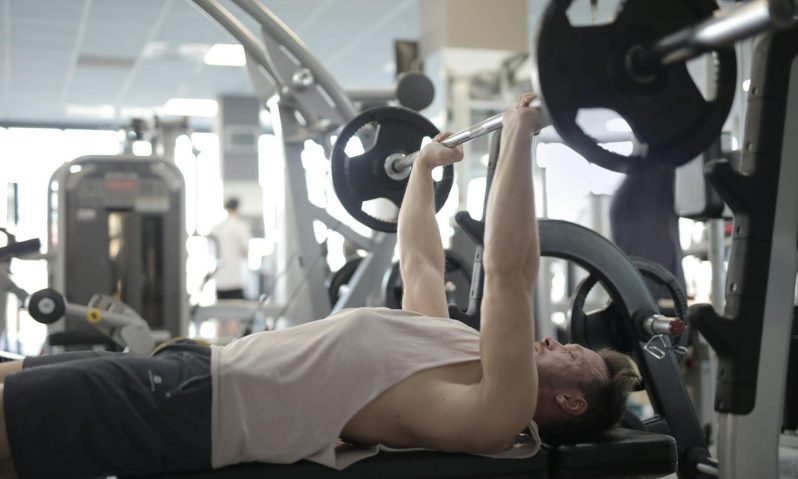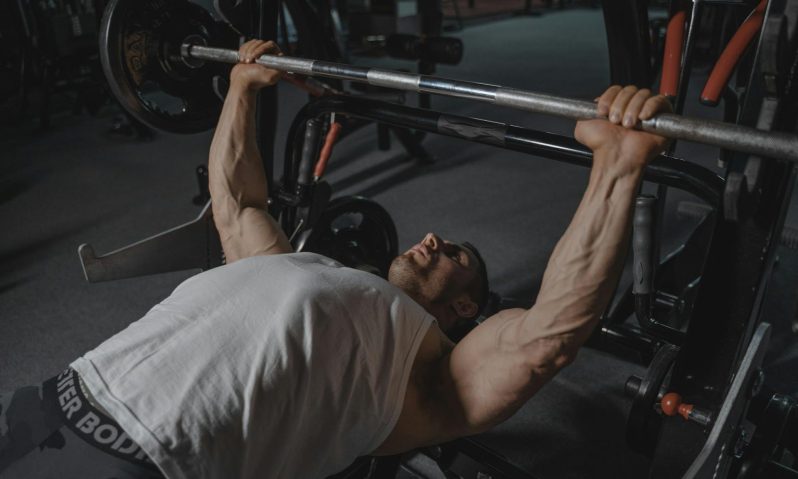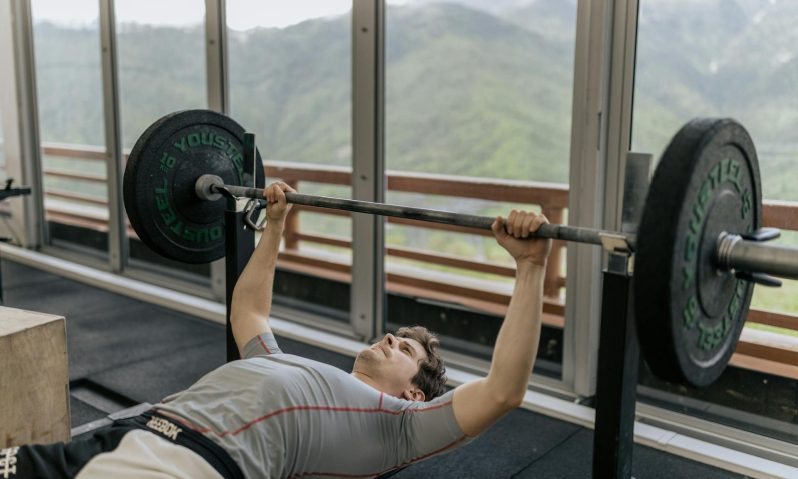The classic bench press is a timeless weightlifting exercise and a favorite of many powerlifters. This popular move works your pecs in your chest, deltoids in your shoulders, triceps and biceps in your arms, and more. People lift varying weights and rest for different amounts of time. Some people strictly rest for one or two minutes, while others rest for a few more. How many minutes should you rest between bench press sets to maximize gains? Recently, researchers decided to find out.
The study

In a study published in the Journal of Sports Sciences, researchers recruited 23 physically active men and women. They divided the participants into three groups and instructed each group to rest for differing durations between sets on the Smith machine bench press.
- Group 1 — rested for one minute between sets
- Group 2 — rested for three minutes between sets
- Group 3 — rested for five minutes between sets
Participants performed six workouts of four sets, each at around 75% of their one-rep max. For the first three workouts, researchers instructed participants to stop bench pressing when they had about six reps in reserve. For the last three workouts, participants were asked to stop with about four reps left in reserve. Researchers assessed bar velocity to determine the proximity-to-failure.
The results

The results showed that longer rest periods between sets are optimal when it comes to building strength and muscle. Researchers concluded that for peak performance, rest periods of up to five minutes between bench press sets provided better strength training performance than shorter rest periods of one to three minutes.
When sets are stopped closer to failure, the researchers noted that five-minute inter-set rest periods are best; however, when sets are stopped farther from failure, or in other words, when you have more fuel left in your tank, three minutes might suffice.
Why are longer rest periods more beneficial for heavier weightlifting?

Researchers are still exploring, but it’s possible that your muscles and central nervous system need those extra couple of minutes to briefly rest and recover before jumping back into heavy lifting. If you’re powering through endurance sets with lighter weights, shorter rest times should be just fine. Researchers and fitness professionals recommend giving yourself a little more time if you’re powering through strength-focused sets with heavier weights.
Additional research published in Sports Medicine shows that it can take up to five minutes for your muscles and central nervous system to recover from the effort of lifting very heavy weights.
Concluding thoughts

Sometimes, some of us feel like we’re walking a fine line between resting too long and losing some of the intensity and effectiveness of our workouts or not resting enough and burning out more quickly. Ultimately, you should do what feels best for you, but if you’re planning on pumping iron Arnie style with that heavier barbell, give yourself those extra couple of minutes to rest; your body will thank you. Plus, who doesn’t want better results and more power?




